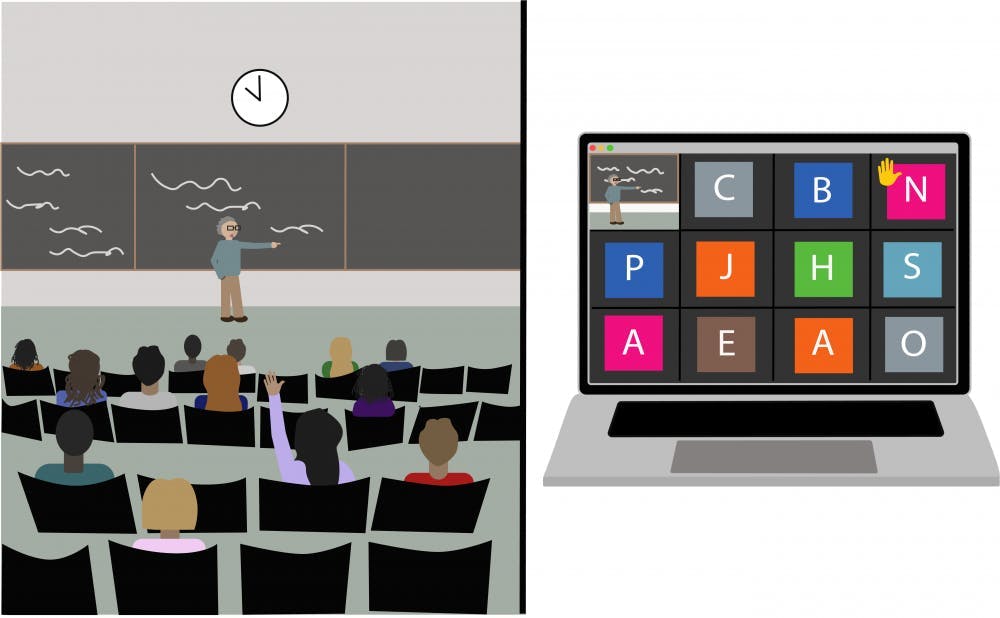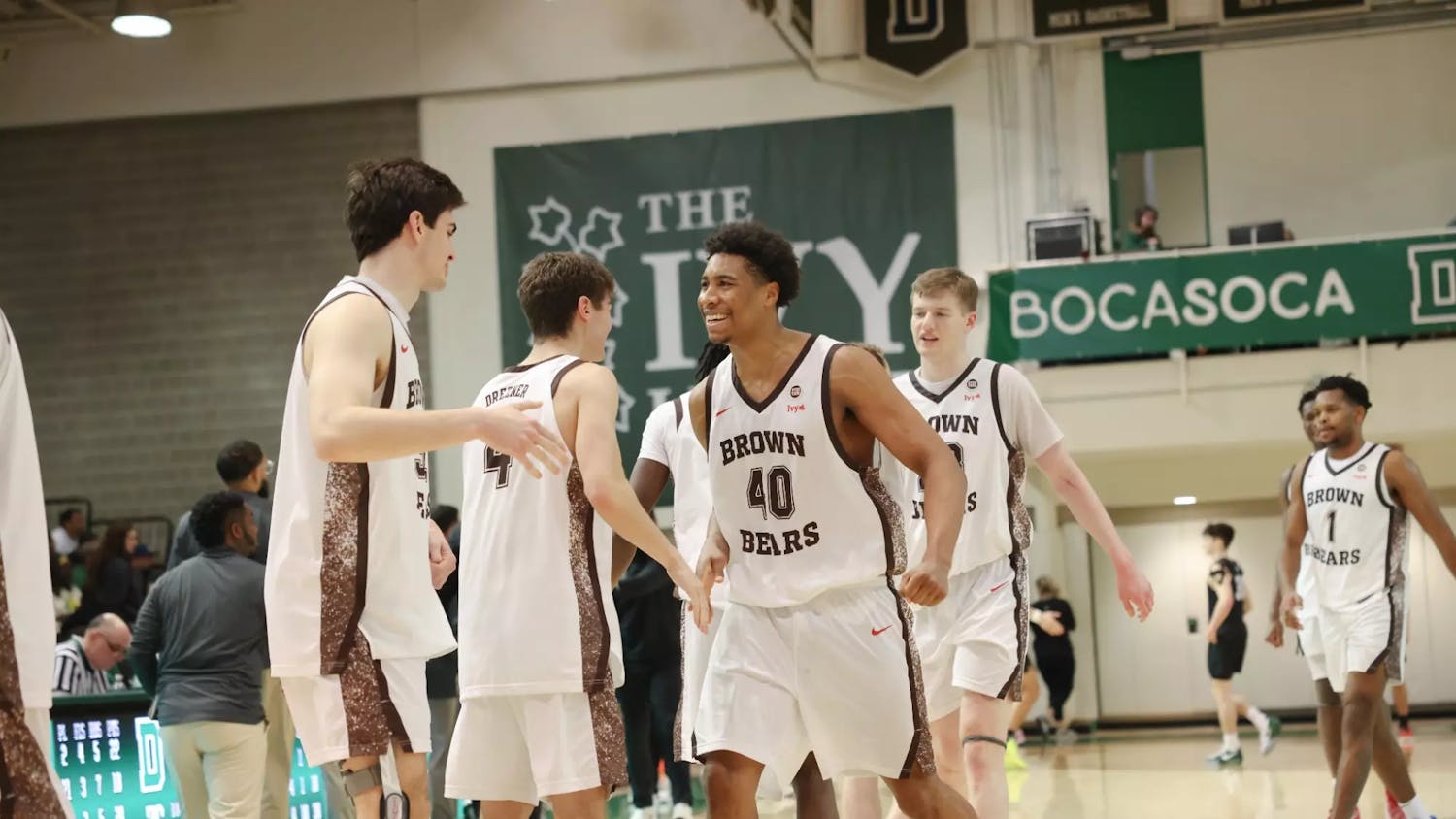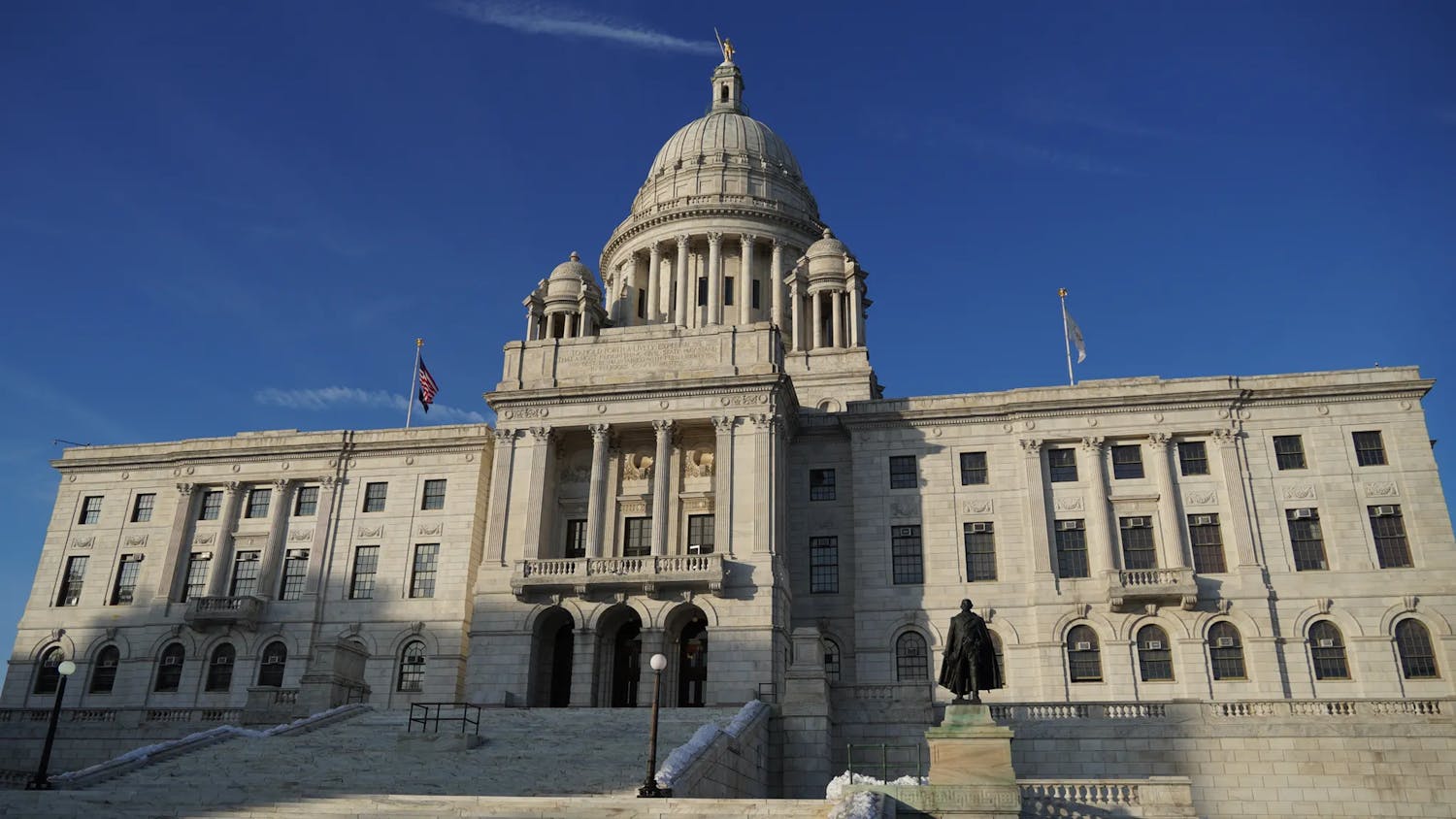The impending threat of the Omicron variant has caused uncertainty about how to proceed with the spring semester. Some professors and students have accepted the risks of the pandemic and are prepared to slowly return to normalcy. Others remain anxious and plan to proceed with caution.
On Jan. 14, Provost Richard Locke P’18 announced that instructors must hold courses in the form they originally listed in Courses@Brown and provided instruction on how to deal with student absences due to sickness. In a follow up email on Jan. 19, Locke altered the policy and said instructors can choose their mode of instruction for the first week of shopping period.
In an interview with The Herald, Locke said it was important that professors teach in the format originally listed to avoid “bait and switch” scenarios, curb loneliness stemming from remote classes, balance safety and interactive learning, as well as follow accreditation board rules. He said that large gatherings of students for in-person classes are “perfectly healthy and safe now ... sometimes we’ve been more restrictive, other times a little more permissive ... It’s all based on the science and the public health guidelines that we get from the CDC, Rhode Island Department of Health and local health experts.”
Physician and Dean of the University’s School of Public Health Ashish Jha wrote in an email to the Herald that new variants like Omicron evoke fear and anxiety, and that it is “understandable” for faculty to feel apprehensive about teaching in-person. Still, he noted that there are no documented cases of transmission between two people with COVID-19 vaccinations and boosters wearing high quality masks. Students and faculty are required to be vaccinated and boosted against COVID-19 before the spring semester, and the University is providing KN-95 masks, The Herald previously reported.
Locke said the vast majority of classes this academic year are fully in-person, with about 40 hybrid or fully online courses in the fall semester and slightly more in the spring due to worries over the Omicron variant.
For some professors, concern over COVID-19 has remained or increased this semester.
Before Locke announced the option to teach remotely during shopping period, graduate students organized a petition calling on Locke to reinstate flexibility over teaching modes, according to Ben Easton, a third-year PhD candidate in the Hispanic Studies department. “We shouldn’t have to decide between our health … and our work,” Easton, who teaches seminars, said. He said he thinks the University should maintain more of the same precautions that they had at the beginning of the pandemic.
But Dr. Jha said the pandemic today looks very different from March 2020 because of effective vaccines and masks. Professor of Economics and Professor of International and Public Affairs Emily Oster echoed this opinion, arguing that the risks of illness no longer outweigh the large costs to student learning from online instruction. Going online “reflects an outmoded level of caution. And it represents a failure of universities to protect their students’ interests,” Oster said in an Atlantic article on Jan 5. She told The Herald that in a hybrid course she taught last year, she noticed a significant decrease in motivation among students.
For Jad Hamze ’25, remote learning was a difficult experience back in high school. He said he was “thankful” all of his classes are in-person this year.
“It’s just really hard to focus when you’re looking at a computer screen the whole time,” Hamze said. “It just doesn’t click at all. You have to be really personally motivated to learn online.”
Some professors voiced that health risks are still too concerning for certain members of the Brown community to accept teaching in-person. Comparative Literature professor Arnold Weinstein was approved to teach remotely for the entire year. “Teaching on Zoom is imperfect, but students and professors tend to be grateful it happens at all,” Weinstein wrote in an email to The Herald. “(Zoom) does work, and is far better than the risk of breakthrough infection for someone my age,” he added.
For Brown community members with low-risk, some still worry about spreading the virus. “What if I end up sitting on a plane going back home or over spring break, and I give it to a senior citizen ... it’s tough to play with,” Hamze said.
Still, Dr. Jha thinks that the risk of COVID-19 transmission on campus is low, as the Omicron wave is already receding and should be at lower levels in the coming weeks.
“There is little reason to believe that there will be spread (of COVID-19) in the classrooms,” Dr. Jha said. “The spread, which should not be extensive, will happen in residential halls and other places where we people congregate without masks. With testing, we can hopefully keep that to a minimum.”
Sociology Professor John Logan decided last summer that he would request to teach both fall and spring courses online. Although he was surprised with how well Zoom worked to teach his small classes during the pandemic, Logan admitted that he prefers teaching in-person.
“I sort of wish now that I had the option to switch (back to in-person teaching) some time during the semester,” Logan said. “(But) I wouldn’t criticize any part of the administration for their decision. It would be very messy if everyone could switch back and forth when they choose,” Logan said.
After shopping period, Michal Loren ’23 hopes that campus will eventually return to a pre-pandemic normal. As a junior, her only semester without the pandemic has been her freshman fall. “I didn’t really get to know classmates or professors or make new friends my sophomore year because it was hard to meet people. Most of my close friends now are from my freshman year,” Michal said.
Zoe Kemper ’24 thinks that students will continue to worry less about contracting and spreading the virus. “Obviously, the way Omicron is gonna get spread at Brown is going to be through social events,” Kemper said. “But I don’t think it’s something to stop us from socializing and enjoying the semester as students.”
Grace Holleb was a University News editor covering academics and advising.





